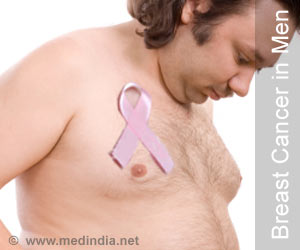Nearly one-third of breast cancer survivors who were employed before treatment, were jobless four years later.

Overall, 30 percent of these working women said they were no longer working at the time of the four-year follow-up survey. Women who received chemotherapy were more likely to report that they were not working four years later.
Many of these women reported that they want to work: 55 percent of those not working said it was important for them to work and 39 percent said they were actively looking for work. Those who were not working were significantly more likely to report they were worse off financially. Results of the study appear in the journal Cancer.
"Many doctors believe that even though patients may miss work during treatment, they will bounce back" in the longer term. The results of this study suggest otherwise. Loss of employment is a possible long-term negative consequence of chemotherapy that may not have been fully appreciated to date," says lead study author Reshma Jagsi, M.D., D.Phil., associate professor of radiation oncology at the University of Michigan Medical School.
Many patients take time off of work during chemotherapy treatment to deal with the immediate side effects of the therapy. The researchers say it''s possible this may lead to long-term employment problems. In addition, chemotherapy treatments can cause long-term side effects such as neuropathy or cognitive issues, which might also affect job prospects.
The findings point to the need to reduce the burden of breast cancer treatment, and reinforce current efforts to develop better strategies for identifying patients less likely to benefit from chemotherapy.
Advertisement
Additional authors: Sarah T. Hawley, Ph.D.; Paul Abrahamse, M.A.; Yun Li, Ph.D.; Nancy K. Janz, Ph.D.; Jennifer J. Griggs, M.D., M.P.H.; Steven Katz, M.D., M.P.H., all from the University of Michigan; Cathy Bradley, Ph.D., from Virginia Commonwealth University; John J. Graff, Ph.D., Cancer Institute of New Jersey; Ann Hamilton, Ph.D., University of Southern California
Advertisement
Disclosure: None
Reference: Cancer, published online April 28, 2014
Source-Newswise















